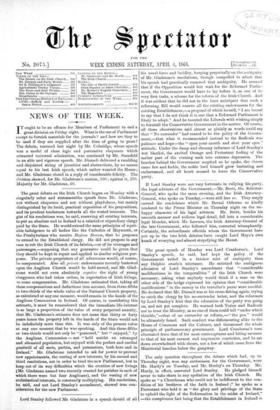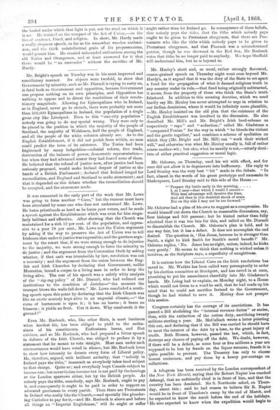The only speeches throughout the debate which had, up to
Thursday night, won any enthusiasm for the Government, were Mr. Hardy's on Tuesday, and Mr. Henley's on Thursday. Mr. Hardy, in effect, answered Lord Stanley. He pledged himself never to take share in any spoliation of the Irish Church. He spoke as "a Churchman who could not be indifferent to the con- dition of his brethren of the faith in Ireland ;" he spoke as a Protestant who held it as "the glory and privilege of the State to uphold the light of the Reformation in the midst of Ireland," —the conspicuous fact being that the Establishment in Ireland is the bushel under which that light is put, not the stool on which it is set. He insisted on the compact of the Act of Union,—on the ties of contract, blood, and religion. In short, Mr. Hardy made a really eloquent speech, so far as his somewhat wooden enthusi- asm, and the thick unintellectual grain of his prepossessions, would permit him. He created unbounded enthusiasm among the old Tories and Orangemen, and at least answered for it that there would be "no surrender" without the sacrifice of Mr. Hardy.































